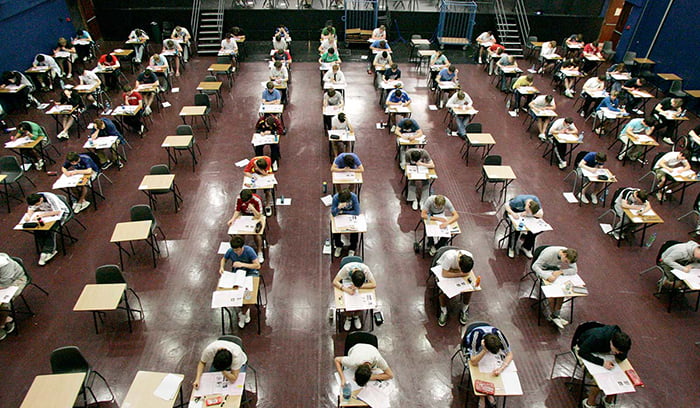Social class is a topic that is mostly kept at bay from the speaking circles in Ireland or that is spoken of in euphemisms or metaphors.
Discussions about social class and class- based injustices are criticized for making political debates ‘ideological’. They don’t accept the fact that all political perspectives are ideological.
Ireland is class divided as much as UK or France. Most of thee higher education courses are dominated by those who are coming from the affluent parts of the society.
Education is the one of the arenas where social class is discussed in euphemisms.
For instance the schools where the working class or ethnic minorities attend are classified as ‘Disadvantage/d’ and even those students are described as such.
The term ‘disadvantage’ conceals the wealth and power differentials between classes that create inequalities in educational outcomes. Like the term ‘poverty’, disadvantage/d is a static noun/adjective where the agents of social injustices are made invisible.
Since those from the privileged school and social class of the society dominates the entry to elite programmes and elite jobs in turn year after year, the pattern normalized the inequalities and make itself seem legitimate.
Thus educational success got limited to those who owns money and has knowledge of how the education system works, and how and where to maximise competitive advantage for their own children.
Research conducted by the scholar Sean Reardon, professor of poverty and inequality in education at Stanford University, has shown that money invested in children’s education outside of school is becoming increasingly important in determining success within school.
Wealthier people invest more money outside the school through private tuition than the poorest section.
Private grinds are offered by individual teachers or sometimes the same teachers who teach children in class, and by ‘grind schools’ in Leaving Certificate subjects.
Expensive language exchange and summer programmes are available to those who can pay to excel in French, Spanish or German especially.
The performance part of the Leaving Certificate music examination now counts for 50% of the total grade, but to be sure of getting a higher level H1 or H2 students need to have undertaken music lessons in an instrument privately at a cost of from €30-60 per lesson.
The cost can and does run into thousands of euro over several years. A similar situation applies in relation to Gaeilge.
As 40% of the Leaving Certificate Examination (LCE) grade is for spoken Irish, those who can afford to pay for their children to attend the Gaeltacht each year (€1,000 for a 3-week stay) are automatically advantaged.
Almost one-sixth of your final LCE ‘points’ can be reasonably well secured in advance by private investment in two subjects.
The only way to address class inequality in education is by challenging the neoliberal capitalist economic model that widens the income and wealth inequalities among the people.
These inequalities leads to injustice in education.
Those from working class are prompted to work frantically outside the school to advantage their children while those who owns money ensure that their children are not consigned to a low waged employment.
Fear of losing, or not getting, class advantage is what drives the pressures on children from their parents in the Leaving Certificate.
A responsible government is expected to make interventions in the class biased educational policies and ensure that one section maintains their class privileges and amass wealth at the expense of low waged workers.


Comments are closed.